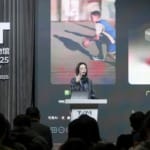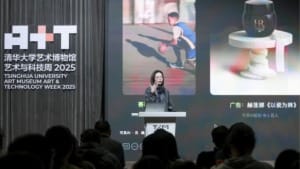Taiwan’s chipmakers weigh U.S. factories to sidestep tariffs
Taiwan’s chipmakers face a tough choice: build costly U.S. factories or absorb high tariffs as Trump pushes for local semiconductor production.

Taiwan’s largest semiconductor company, Taiwan Semiconductor Manufacturing Co. (TSMC), recently made a bold move by holding its first-ever board meeting on American soil. This symbolic step highlights TSMC’s commitment to increasing its presence in the United States, which could not have come at a more crucial time.
Just days before the meeting, U.S. President Donald Trump made strong remarks about Taiwan’s semiconductor industry, accusing it of taking away business from the United States. He clarified that he wants that business back and is willing to take drastic measures to make it happen.
Trump has threatened to impose a 25% tariff on imported semiconductors to push chipmakers to move production to the U.S. He has also warned that tariffs could be increased even further if necessary.
U.S. reliance on Taiwan’s chip industry raises concerns
Taiwan plays a critical role in the global semiconductor supply chain. According to the Taiwan Semiconductor Industry Association, the island was responsible for 76.8% of the world’s wafer production, packaging, and testing in 2024. With chips powering everything from artificial intelligence to advanced military technology, the U.S.’s heavy dependence on Taiwan’s chipmaking industry is seen as a strategic vulnerability.
Additionally, the financial impact is significant. Taiwan’s trade surplus with the U.S. reached a record US$64.8 billion last year, and this figure is expected to rise as demand for high-tech chips grows. In 2024, the production value of Taiwan’s semiconductor industry is projected to reach NT$6 trillion (US$183 billion), a 16.5% increase from the previous year, according to the Industrial Technology Research Institute.
With looming tariffs, Taiwanese companies face a tough decision: invest in costly U.S. manufacturing facilities or find alternative ways to manage the potential financial hit.
Taiwanese firms respond to shifting policies
TSMC has been at the forefront of adapting to the changing trade landscape. The company has already invested heavily in a new factory in Arizona, which has started producing 4-nanometre chips. TSMC plans to manufacture even more advanced chips at the facility by 2028.
On February 14, Taiwan’s leader, William Lai Ching-te, pledged to increase government support for Taiwanese companies looking to invest in the U.S. He also committed to strengthening communication with Washington to address concerns surrounding semiconductor production.
Other major Taiwanese chipmakers are also taking steps to align with U.S. policies. United Microelectronics Corporation (UMC) recently announced a collaboration with Intel to develop a chip manufacturing process in the U.S. This partnership aims to serve fast-growing markets and expand UMC’s footprint beyond Taiwan.
However, not all Taiwanese semiconductor companies can make such a move. Building and running chip factories in the U.S. is a capital-intensive process. Smaller companies, in particular, may struggle with high costs related to land, labour, and operational expenses.
“While establishing a fab in the US could provide a way to avoid tariffs, the financial feasibility of such investments remains a key concern,” said Cheng Kai-an, a senior industry analyst with the Market Intelligence & Consulting Institute in Taipei.
Michael Yang, a senior director for semiconductors at research firm Omdia, echoed this sentiment, stating that only the largest foundries have the scale to make such costly investments. “For foundries that don’t have a scale comparable to the top four or five, it’s quite difficult to make such a large investment,” Yang explained.
Despite these challenges, Taiwan’s chip industry is already increasing its investments in the U.S. electronics sector. Analysts believe this trend will continue as companies seek to balance geopolitical risks, trade policies, and business growth.
















